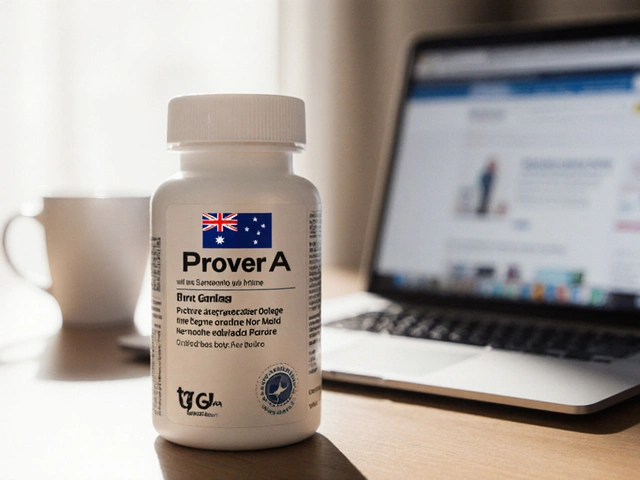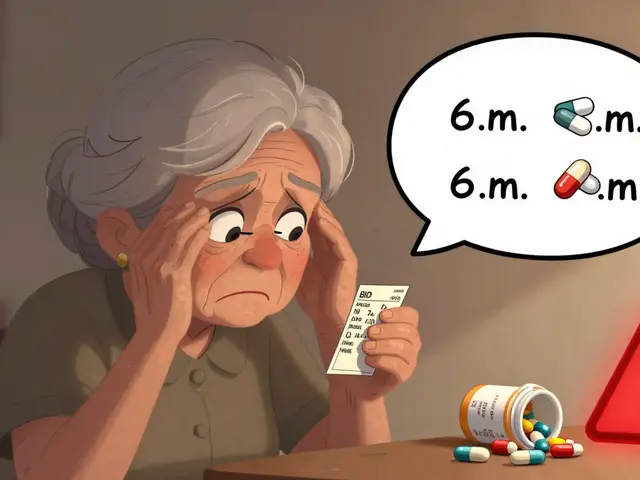
Daclatasvir and Hepatitis C: What You Need to Know Before Joining a Clinical Trial
Did you know that more than 71 million people worldwide are living with chronic hepatitis C? If you’re one of them, you’ve probably heard the name Daclatasvir pop up in treatment talks. It’s an antiviral that targets the virus directly, and many patients wonder if a clinical trial could be the right next step. Let’s break down what Daclatasvir does, how trials are run, and which questions you should ask before signing up.
Understanding Daclatasvir and Its Role
Daclatasvir belongs to a class called NS5A inhibitors. In plain terms, it blocks a protein the hepatitis C virus needs to multiply. When used with other antivirals, it can push cure rates past 90 % for several genotypes. Most people tolerate it well—common side effects are mild fatigue or headache, and serious issues are rare.
Because it works fast, many doctors prescribe a short‑term course (usually 12 weeks). That makes it attractive for trial designers who want to test new drug combos without extending the study period. If you’re already on Daclatasvir, a trial might let you add a new medication or compare its effectiveness against another regimen.
How Clinical Trials Work and What to Expect
Clinical trials are split into phases. Phase 1 checks safety in a tiny group, Phase 2 looks at dose and early efficacy, and Phase 3 compares the new treatment against the current standard. Most patient‑focused hepatitis C studies you’ll see are Phase 2 or 3 because we already know Daclatasvir is safe.
Before you enroll, the study team will run a screening battery: blood tests, liver scans, and a review of your medical history. They’ll also explain what you’ll need to do—usually taking pills daily, coming in for regular check‑ups, and reporting any side effects immediately.
The upside? You get access to cutting‑edge therapies that aren’t on the market yet, often at no cost. Plus, trials are tightly monitored; you’ll have a doctor checking your liver function every few weeks. The downside is the commitment—some studies last up to a year and require strict adherence.
Insurance can be tricky. Many sponsors cover the drug and related lab work, but you might still be responsible for routine visits or unrelated medical costs. Always ask the trial coordinator how billing works before you sign the consent form.
Here are three quick steps to help you decide if a trial is right for you:
- Check eligibility. Look at age limits, liver‑damage stage, and whether you’re already on Daclatasvir or another antiviral.
- Ask about the protocol. Find out how many pills you’ll take, how often you’ll visit the clinic, and what side effects have shown up in earlier phases.
- Consider logistics. Is the trial site close to home? Will you need travel support or time off work?
If those answers line up with your lifestyle, a clinical trial could be a smart move. And if you’re still unsure, talk to your regular hepatitis C doctor—they can help weigh the potential benefits against any risks.
Ready to learn more? Head over to HappyHead Pharmaceuticals for detailed drug profiles, patient stories, and a searchable database of ongoing trials. Knowledge is power, especially when it comes to your liver health.
-
20 Nov

-
8 Nov

Daclatasvir and Hepatitis C: A Guide for Patients Considering Clinical Trials
Welcome, fellow readers! I'm excited to take you through the world of Daclatasvir and its role in treating Hepatitis C. We will explore what clinical trials are and how they come into play when considering this treatment approach. This guide will be a beacon of knowledge for patients who are currently navigating this path or considering joining clinical trials for Hepatitis C therapy. Together, we can gain understanding so you can make more informed decisions about your health.






